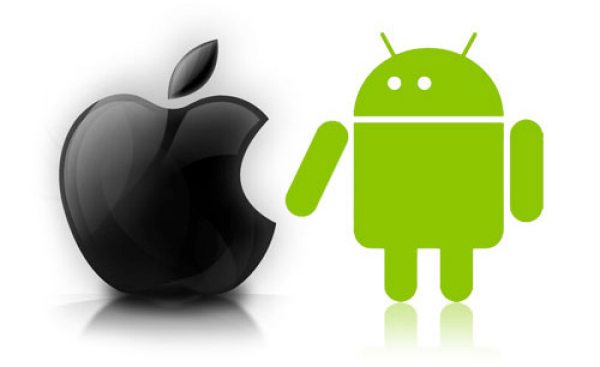Could iPhones be more data secure than Androids?

Currently the mobile technology world has been highlighting the fundamental security advantages iPhones have over other Smartphone models.
This came about after recent media attention concerning the data protection risks mobile phones pose now forensic recovery software is available to the general public. Earlier in February Channel 4’s Data Baby launched this concern into the mainstream by testing how easy it is to retrieve data from a strangers phone even after it had been wiped.
Data baby reported, “The phones look like they’re completely blank, but the data is still there in the memory,” said Glenn Wilkinson of SensePost. “You can use software to find it, and that software is freely available for download. I can teach you how to access the data in 10 minutes.”
However several technology organisations and phone recyclers have claimed that Channel 4 did not make it clear enough that there is a significant difference between an iPhones’ security capacity and a general Android. The Channel 4 report investigated the data security hazards solely on Android phones, not iPhones and according to many Phone recycling companies this makes a substantial difference.
Mobile recyclers Bozowi Sell My iPhone said “The good thing about the newer iPhone models is the data pathways are encrypted, making it ludicrously difficult to trace its data. This is the complete opposite to an Android handset, where the pathways are very easy to reconstruct.” These encrypted data pathways make it almost impossible for a hacker to find their way to the phone’s data. Pathways are essentially the phone’s directory, this tells the software exactly where the data is lurking in the handset’s solid-state memory.
According to Apple Support ” Devices that support hardware encryption erases user settings and information by removing the encryption key that protects the data. This process takes just a few minutes.”
This means the ‘erase all content and settings’ option on an iPhone is very different to an android’s factory reset. A factory reset simply deletes the pathways to the data and leaves the data scattered around the solid-state memory. When you perform an ‘erase all content and setting’ on a iPhone however, the pathways lock with it so does the data.
Granted, the data is still on the iPhone after an ‘erase all content and setting’, but unlike the Androids’ factory reset the information is much more resistant to forensic recovery software. Recovery software at one point was only available to the government and police, but now practically anyone can get hold of it for virtually nothing.
The Crown Prosecution service sated “Forensic Data Retrieval Software (FDR) was developed to help the police investigation officers convict criminal suspects by recovering data from their phones or computers. However, as technology progresses such software develop frequent limitations”
One of its limitations being the iPhone 4s and up. Forensic recovery software works by using algorithms to reform pathways to the phone’s debris data. This works affectively with Androids but not with the newer iPhones models because the encrypted pathways disorientate the software’s algorithms.
This does not mean the iPhone is completely safe from data retrieval programs, but it is considerably more secure than other Smartphone handsets.
Phones Review would like to say a big thanks to Samantha Greenaway, a dedicated freelance researcher and writer of security within technology. She is currently working as a researcher for the University of Birmingham, UK.
Do you think that iPhones are more data secure than Androids?

Comments
2 thoughts on “Could iPhones be more data secure than Androids?”
Surely there is an app you can get for your Android that encrypts the pathways?
This is almost moot. Several independent security companies surprised us all. The iPhone is actually least secure. But not in all instances. Just enough to favor Android as being more secure.
Quite sure everyone can do their own research on this.